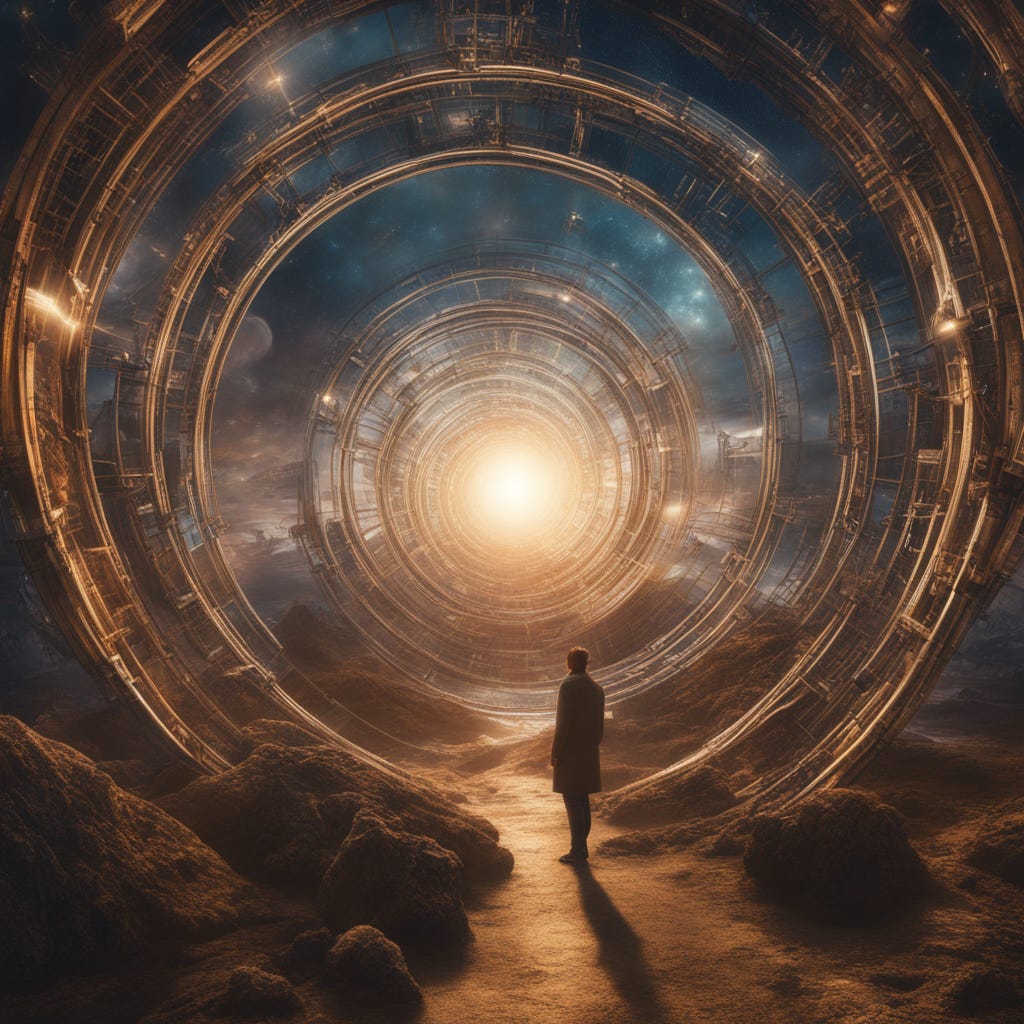Exploring Time Travel
Time travel has been a beloved trope in literature and cinema for decades.
Time Travel, Paradoxes, & Temporal Anomalies
Introduction
Time, an enigmatic river that flows one way, has captivated human imagination for eons. The concept of time travel, a staple in science fiction, sparks wonder and curiosity about what might be possible. In this article, we'll embark on a journey through the fascinating realms of time travel and temporal anomalies, examining both fictional narratives and the intriguing theories rooted in physics. In this and the following articles, we'll grapple with paradoxes and ponder the profound implications of tampering with the past or peering into the future.
Theories of Time Travel
Before we dive into the fictional portrayals, let's first understand the scientific theories that underpin the concept of time travel. According to Einstein's theory of relativity, particularly the well-known equation E=mc^2, time and space are inextricably linked. This means that altering the fabric of space could potentially lead to manipulations in time as well.
One of the most popular theoretical frameworks for time travel involves wormholes. These are hypothetical tunnels in spacetime that could allow for shortcuts across vast cosmic distances. If we could control and stabilize a wormhole, we might be able to use it as a portal through which we could traverse time.
Temporal Anomalies: A Glimpse into the Unusual
Temporal anomalies are disruptions or irregularities in the flow of time. These anomalies are a staple of science fiction, but some theories in physics suggest they might not be entirely beyond the realm of possibility.
One intriguing concept is the "time dilation" effect, as described in Einstein's theory of special relativity. When an object approaches the speed of light, time slows down relative to an observer who isn't moving as fast. This means that a hypothetical astronaut traveling close to the speed of light would experience less passage of time compared to someone on Earth. It's a fascinating example of how time can behave unexpectedly under certain conditions.
Fictional Narratives: The Allure of Time Travel
Time travel has been a beloved trope in literature and cinema for decades. From H.G. Wells' "The Time Machine" to modern classics like "Back to the Future," these stories ignite our imagination and prompt us to ponder the implications of journeying through time.
"Back to the Future" is a prime example of a story that explores the complexities and paradoxes of time travel. Marty McFly, the protagonist, inadvertently alters the past, leading to a cascade of changes in the present. This demonstrates the butterfly effect, a concept in chaos theory where small changes can lead to significant and unpredictable consequences.
Paradoxes: Conundrums of Time Travel
Looking deeper, we encounter the mind-bending paradoxes associated with time travel. These are situations that seem to defy logic and challenge our understanding of cause and effect.
The grandfather paradox is a classic example. Imagine you travel back in time and accidentally prevent your grandfather from meeting your grandmother. This would mean you were never born, which raises the question of how you could have traveled back in time in the first place to prevent their meeting. It's a loop of causality that seems impossible to resolve.
Another famous paradox is the bootstrap paradox, also known as the ontological paradox. This occurs when an item or information is created without any clear origin. For example, imagine you travel back in time and give Beethoven a modern piano composition. Beethoven then transcribes it, and it becomes one of his famous works. But who was the original composer?
Implications and Ethical Dilemmas
The prospect of time travel raises profound questions about free will, determinism, and the nature of reality itself. If we can alter the past, what does that mean for the present and the future? Are there immutable points in time that can never be changed?
Furthermore, there are ethical dilemmas surrounding time travel. Would it be permissible to change historical events to prevent tragedies? Or does meddling with the past risk unforeseen and potentially catastrophic consequences?
Conclusion: Navigating the Rivers of Time
Time travel, whether in the realms of fiction or theoretical physics, continues to captivate our collective imagination. It beckons us to ponder the mysteries of the universe and challenges our understanding of reality. While we may not have a working time machine yet, the journey through the concepts of time travel and temporal anomalies remains an exhilarating voyage through the corridors of human imagination.
Keep reading with a 7-day free trial
Subscribe to StoryAngles to keep reading this post and get 7 days of free access to the full post archives.





